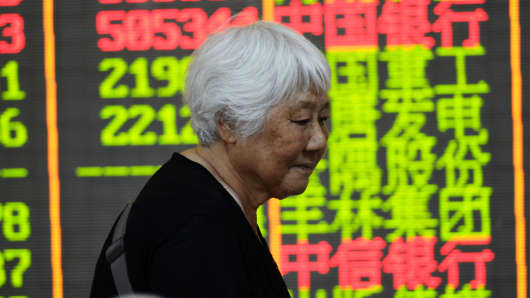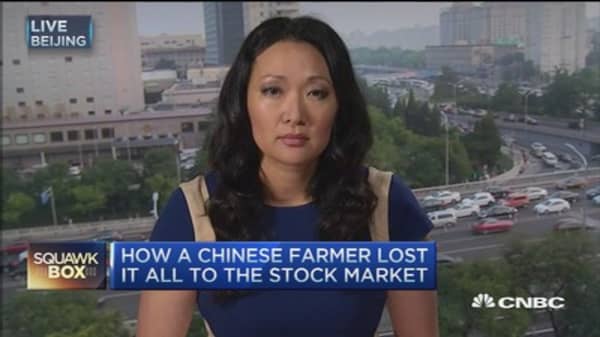Still, the market's latest selloff poses major problems for China as it seeks to transition its economy from heavy dependence on government investment to a greater reliance on consumer-driven growth. Rising wages have created wealth for individual Chinese investors, but the latest losses have severely dampened consumers' outlook and wiped out millions in households' personal savings.
"Retail investors' confidence in the mainland market is very weak," said Steven Leung, a market analyst in Hong Kong, told Reuters.
Read MoreChinese buyers feed new energy into Texas real estate
Retail investors only hold 22 percent of the market, but they account for the majority of trading volume, according to the Bloomberg report, which also notes that low stock dividends lead many Chinese investors to chase market moves "rather that focus on the fundamentals of profit and loss."
Institutional investors have just 11 percent of the market, with the rest—some 60 percent—held by state-owned parents and other investors that don't typically trade their holdings, according to the report.





